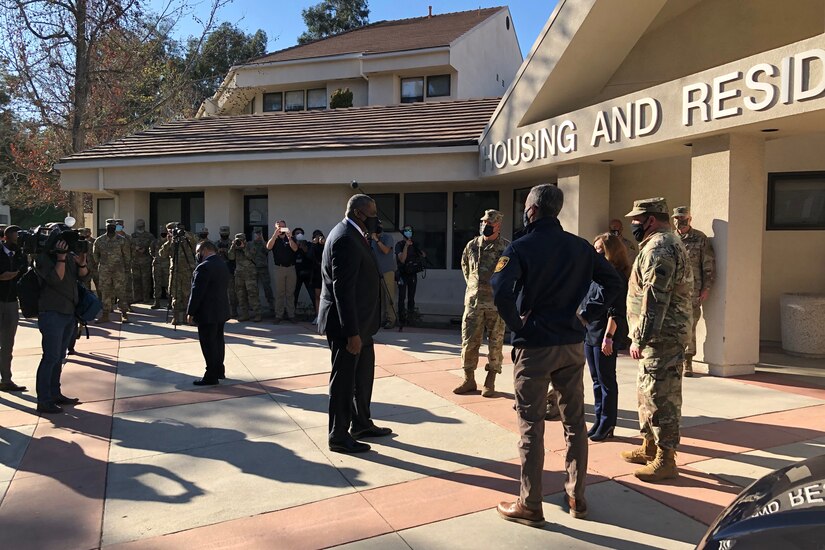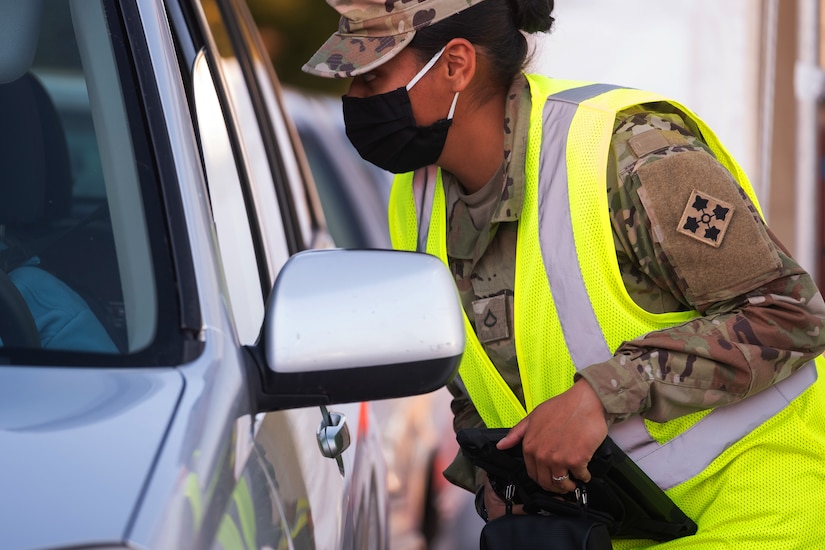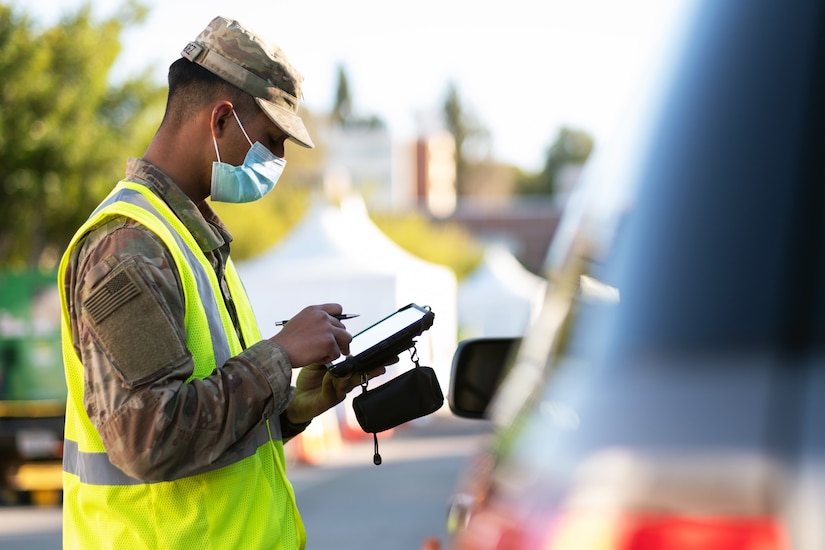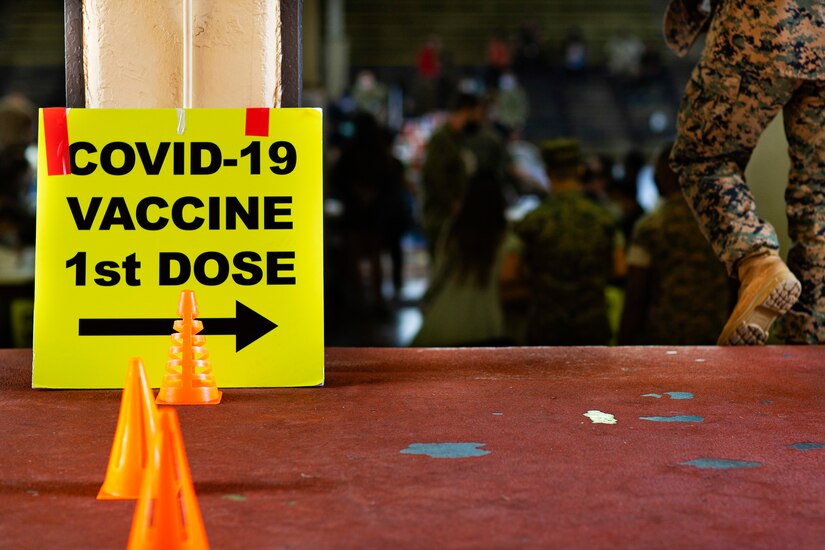Feb. 25, 2021 | , DOD News

Austin visited the site yesterday and said he was impressed by the organization, zeal and commitment of all those working to inoculate Californians. California has suffered the most COVID-19 deaths of any state in the U.S. Even as the vaccines rolled out late last year, the state experienced a surge in coronavirus cases. Out of more than 500,000 Americans who have died from the virus, more than 48,000 were from California.
Austin approved the deployment of an active-duty team to Los Angeles to help get vaccines in arms, and a 222-member group of service members was formed around the Army's 299th Engineer Company from Fort Carson, Colorado. Last week, the unit joined Federal Emergency Management Agency personnel, California National Guardsmen and state and city health officials. Within a week, they were inoculating 6,000 Angelenos a day.
Before arriving in Los Angeles, Austin stopped in Colorado to talk to the leaders of the U.S. Northern Command, which is spearheading the DOD's effort to combat the disease. After arriving in Los Angeles, he spoke to the news media in the parking lot of the university, which has been transformed into a drive-thru vaccination hub.

Austin praised Northcom for its plan, saying it has been incredibly effective in a short period of time. "When you take a look at this, it makes you proud to be an American," he said.
Many of the soldiers serving in Los Angeles — both active duty and guardsmen — wear combat patches. These women and men have served around the world trying to make things better for oppressed populations, Austin said. They work building health systems in Afghanistan or Iraq or the Horn of Africa. They also provided security in those nations.
But this is different. "I asked a number of our troops today how they feel about being able to come here and help you in America, understanding that every shot that they deliver to a person is probably helping to save that person's life, eventually, and that's a big deal," he said. "We're in the business of protecting Americans and saving lives, and they feel really good about what they've been doing."
Californians have welcomed the service members and local officials said they're pleased the effort has been so successful.
"I've talked to some of our local officials and civilian agency heads, and they've told me that [what] the military brings to this equation is discipline, organizational skills and effectiveness," Austin said. "They were impressed by the fact that, every day, our troops take a look at things and endeavor to get better. They know good is not good enough. And, so, they've started in one place and, over … a very short period of time, increased the capacity in ways that we probably couldn't have envisioned."

Austin toured the site, which includes a walk-up vaccination area. People were socially distanced as they cued up. A young Air Force sergeant said it's about a 24-minute process from the time a person enters the facility to the mandatory 15 minutes they must wait after receiving the shot.
Around 2,000 people a day are vaccinated at the walk-up site. The drive-thru site, which allows people to receive the shots in their cars, also runs like clockwork.
"Here you see the evidence of what organization and teamwork and discipline brings to the equation," the secretary said.
Austin was told that a soldier from the neighborhood was able to give his mother a vaccination. "The ability to do things like that, I think, … it really makes a difference," he said. "And our troops find this to be a very meaningful deployment."
Austin said a "whole-of-government, all-of-nation effort" was necessary to combat COVID-19, requiring facilities and personnel from all levels of government.








No comments:
Post a Comment